Whistleblowing takes immense courage, as it involves reporting illegal or unethical activities within an organization. However, it also exposes whistleblowers to potential retaliation from their employers. Understanding the risks involved and taking proactive steps to protect yourself is crucial. In this blog post, we will explore effective strategies to safeguard your rights as a whistleblower.
Know Your Whistleblower Protections
Federal laws protect employees from being retaliated against for whistleblowing. The Whistleblower Act of 1989 prohibits most federal agencies from taking reprisal action against an employee who makes a protected disclosure. Protected disclosures are defined as any disclosure of information that the employee reasonably believes evidences a violation of law, gross mismanagement, a gross waste of, or abuse of authority.
State laws also protect employees from being fired, demoted, harassed or otherwise retaliated against for reporting suspected illegal activities or other violations of the law.
Document Everything
Creating a detailed record of incidents, conversations, and any evidence related to the wrongdoing is crucial. Keep a log of dates, times, locations, and individuals involved. Preserve any emails, memos, or other documents that may be relevant to your case. These records will serve as valuable evidence if you face retaliation and need to take legal action.
Understand Your Employer's Policies
Familiarize yourself with your employer's policies regarding whistleblowing and retaliation. Review the employee handbook, code of conduct, or any other relevant documents. Understanding your rights and obligations within the organization will help you make informed decisions and navigate potential challenges.
Seek Legal Counsel
Consulting an employment law attorney with experience in whistleblower protection is vital to ensure your rights are protected . A knowledgeable attorney can guide you through the intricacies of the legal process, assess the strength of your case, and provide valuable advice on how to proceed.
As a whistleblower, it is essential to be aware of the retaliation risks you may face and take proactive steps to protect yourself. Educate yourself on whistleblower protection laws, document everything, seek legal counsel, understand your employer's policies, and take precautions to maintain anonymity when necessary. Remember, you are not alone in this journey, and Weiler Law PLLC is here to provide expert guidance and representation.
If you believe you have been subjected to retaliation or require legal assistance with your whistleblower case, contact Weiler Law PLLC today.

